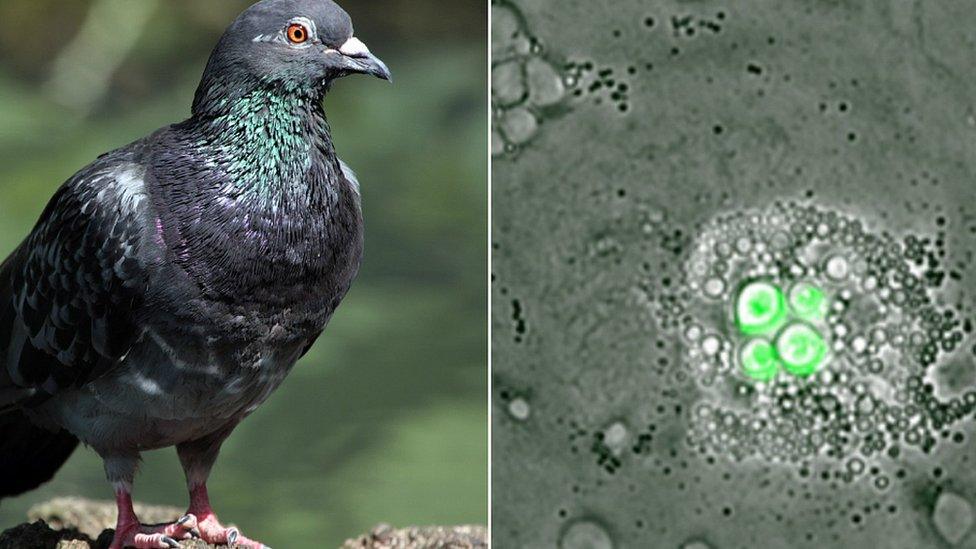White blood cell found in birds 'can destroy fatal infection'
- Published

Birds are known to carry Cryptococcus neoformans, which can cause a fatal infection in people with weakened immune systems
A specialised white blood cell found in birds can destroy an infection thought to cause hundreds of thousands of human deaths a year, scientists claim.
Cryptococcus neoformans is a fungus that can cause a fatal infection in people with weakened immune systems - particularly those with advanced HIV.
Birds are known to carry the fungus, with experts puzzled why the birds themselves do not appear to become ill.
Research has found a blood cell called a macrophage can block its growth.
The fungus, found in bird's droppings, mostly infects the lungs or the central nervous system.
Scientists at the University of Sheffield and the University of Birmingham found it can grow slowly within the bird's digestive tract, but if it tries to invade the bird's body the immune system immediately destroys it.
Dr Simon Johnston, who led the research, said: "Birds have a higher body temperature than humans, but this alone is not enough to fully stop the fungus.
"By studying bird cells under the microscope, we have seen that macrophage cells have the ability to completely block the growth of the fungus, which can be fatal in humans.
He added: "If we can learn how some animals are able to resist infection we might be able to gain insights into how we can improve the human immune response to this fungus."
The universities said the work was part of a larger international effort to help fight cryptococcosis.
The findings are reported in the journal Scientific Reports, external.